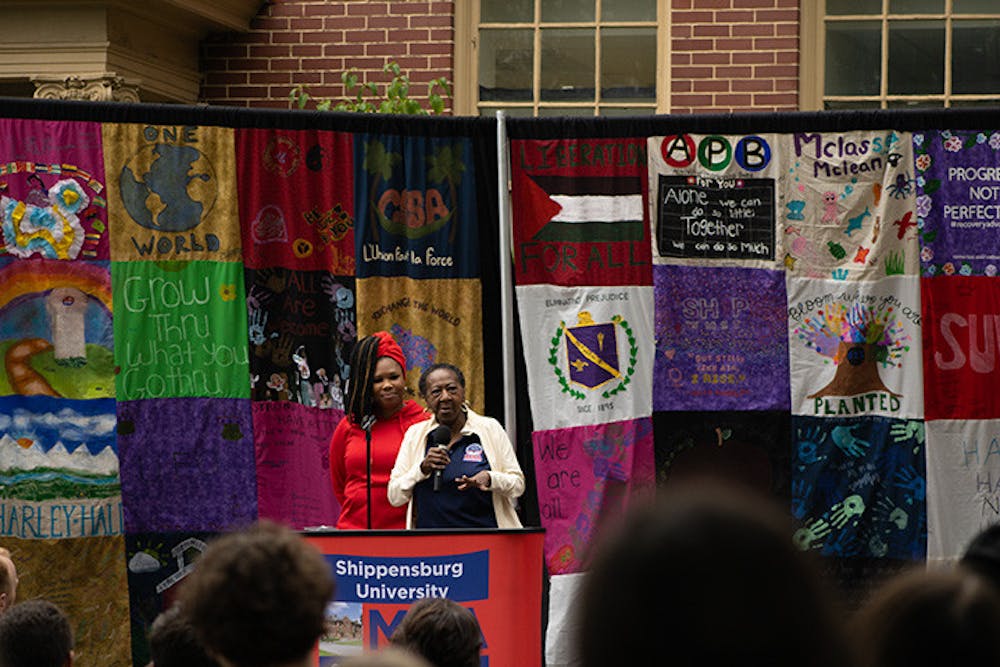Diversity Week 2024 has come to a close, but its message still carries on across campus.
Multicultural Student Affairs (MSA) revealed “A Quilt to Cover Us All” Friday on the Gilbert Lawn, bringing Diversity Week to an end. Each panel of the quilt was created by faculty and students, representing the diversity, inclusivity and unity on campus.
As a large crowd gathered in front of Gilbert Hall, Diane Jefferson, the director of MSA, and Kapri Brown, the associate director of MSA, spoke to students about the quilt and thanked faculty and the student organizations that contributed a panel.
Speakers, such as SU President Charles Patterson and Assistant Vice President for Inclusion and Belonging Manuel Ruiz, also talked about the quilt and the importance of its message on campus.
“We want everyone on campus to know that they are heard and they are seen,” Ruiz said during his speech.
That message rang true as students from different organizations and classes such as Latino Student Organization (LSO) and University 101 spoke about their quilt panels and the meaning behind them.
“We started out with just a couple panels. It was an idea, we were sitting around talking,” Jefferson said. “I said it would be really neat if we could find a way to involve people to show, so they could have a visual, a visual sign. Maybe like a quilt or something like that. It was kind of off the top.”
Over the years, the quilt grew into a symbol for the campus community.
“The first year, I think we had maybe one panel and it just grew — just grew as we involved more people,” Jefferson said.
Despite the rain, students enjoyed the event, lining up at various food trucks after the quilt reveal.
The reveal of “A Quilt to Cover Us All” comes during a time in which diversity, equity and inclusion (DEI) initiatives are a huge topic across the country, especially on college campuses. These initiatives are relevant to SU’s campus and other campuses across the country.
These initiatives are essential for “creating educational environments where every student can thrive,” according to a Forbes article.
The University of Michigan, for example, has a webpage dedicated to how DEI initiatives can be implemented on campus and their importance. “Without widespread awareness, multiple avenues for input and feedback, and opportunities for meaningful involvement, your DEI plan can lose traction or, worse, never get off the ground,” the website says.
To learn more about DEI on campus, visit www.ship.edu/life/diversity/.



The Slate welcomes thoughtful discussion on all of our stories, but please keep comments civil and on-topic. Read our full guidelines here.